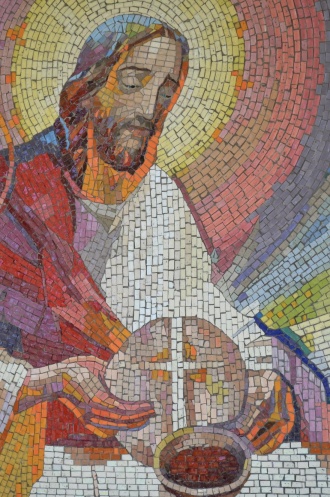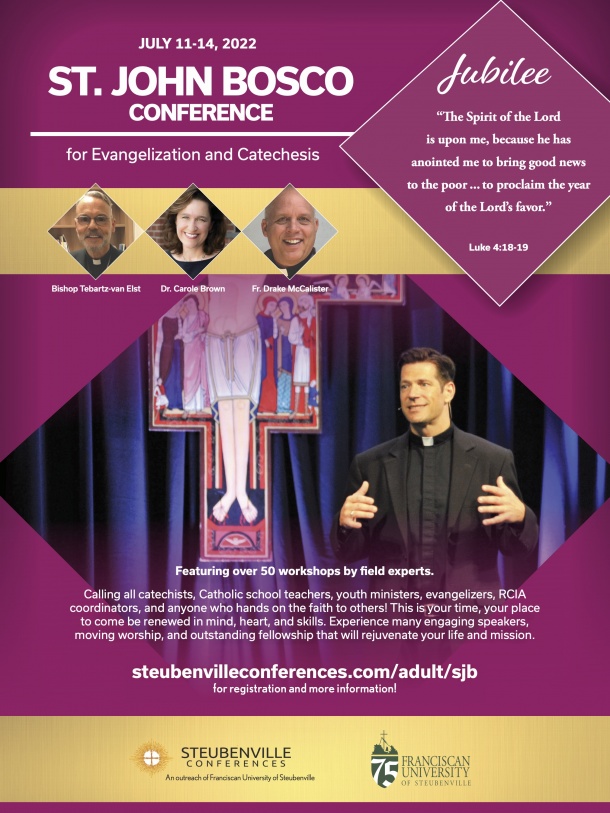From the Shepherds – A Half Century of Progress: The Church’s Ministry of Catechesis, Part Three
The General Catechetical Directory (1971) – Catechesi Tradendae (1979)
In this series of articles exploring a rather extraordinary fifty-year period in the Church’s catechetical mission, we have already considered the impact of the six International Catechetical Study Weeks. We now turn our attention to three pivotal catechetical documents promulgated at the level of the universal Church: the General Catechetical Directory(1971), and two apostolic exhortations, St. Paul VI’s Evangelii Nuntiandi (1974) and St. John Paul II’s Catechesi Tradendae (1979).
By the time the final report of the International Catechetical Study Week at Medellin, Columbia was published in 1969, the Holy See was well into the process of developing a catechetical directory for the universal Church. That process had been set in motion by the promulgation in 1965 of the Second Vatican Council’s Decree on the Pastoral Office of the Bishops in the Church Christus Dominus. It specifically prescribed that “directory should be composed concerning the catechetical instruction of the Christian people.”[1]
General Catechetical Directory (1971)
In June 1966, the task for implementing the conciliar mandate for a directory was given to the Congregation for the Clergy under the leadership of its prefect, Cardinal Jean Villot. At that time, the Congregation for the Clergy had the competence to oversee the Church’s catechetical ministry. (Pope Benedict XVI subsequently transferred that responsibility to the Pontifical Council for Promoting the New Evangelization.)[2] Cardinal Villot gathered an international commission in Rome in 1968 to plan the directory. The commission was also responsible for the composition of the directory and consulted with the Congregation for the Doctrine of the Faith and the Congregation for the Sacraments throughout the process. The commission also consulted directly with the world’s bishops. The commission developed a proposed outline, which was reviewed at a special plenary session of the Congregation for the Clergy. The Foreword to the Directory states, “After that, a longer draft was prepared, and once again the Conferences of Bishops were queried so that they might express their opinion about it. In accord with the advice and observations given by the bishops in this second consultation, a definitive draft of the Directory was prepared. Even so, before this was published, it was reviewed by a special theological commission and by the Sacred Congregation for the Doctrine of the Faith.”[3] A draft text was developed and then released to all the episcopal conferences in the world for further consultation.
As is evident, the task of preparing a catechetical directory for the universal Church in a post-conciliar Church was not only challenging because of the nature of the task itself but also because of the methodology employed by the congregation; namely, an exhaustive process of multiple, multi-tiered, worldwide consultations. In fact, this rather cumbersome process became the standard for the preparation of the two succeeding catechetical directories of 1997 and 202,1 as well as for that of the Catechism of the Catholic Church.
The General Catechetical Directory was published on Easter Sunday, April 11, 1971, bearing the signature of Cardinal John Wright, who had by then become the prefect of the Congregation for the Clergy. Its purpose was “to provide assistance in the production of catechetical directories and catechisms.”[4]
Viaticum: Sacred Food for the Final Journey
We never know which Holy Communion might be our last. We make a big deal of our First Communion, and rightly so. But why don’t we have a strong catechesis and spirituality of Viaticum, that final time we receive the Body of Christ before our soul leaves our own body to meet him?
As a Church, perhaps we are missing a robust eucharistic spirituality in general. Maybe we lack a proper sober focus on our preparation for death. We could likely all benefit from considering the Last Rites in a more personal and specific way, so that they may be more fruitfully celebrated for us and those we love.
For the Dying
“Father, you got here just in time,” the nurse says. It is such a blessed and needed relief when someone receives their final sacraments! No matter the circumstances, these gifts of Holy Mother Church provide occasions of intense grace, whether the person was a daily communicant or long fallen away, whether in an emergency situation or with the comfort of hospice care. Often people will seem to cling to life, whether consciously or not, and then decline rapidly after a priest’s visit. In my experience, this is particularly true if Confession was needed. Care should always be taken to arrange a private moment for that purpose to be properly disposed in the state of grace before the reception of the Eucharist.
Too often, the effects of medicine and the progression of illness limit the scope of the recipient’s participation. Especially with privacy law restrictions ever increasing, the faithful should be reminded to notify the parish with members’ serious health updates so they can be taken care of promptly. Our spiritual family has special solidarity with the suffering.
The texts of the ritual are of incomparable theological, poetic, and pastoral value. The Commendation of the Dying stands out among them with its litanies. Only in the most dire situations should these prayers be omitted. There is a unique form for the administration of Viaticum: “May the Lord Jesus Christ protect you and lead you to eternal life.” All this serves to heighten the gravity of this liturgical and human reality.
Receiving the Anointing of the Sick and Apostolic Pardon together with Viaticum is a sign of divine election. That monumental last blessing has sadly become a forgotten treasure of our spiritual patrimony. What certain peace a soul feels to experience the full force of the Church’s forgiving authority with a plenary indulgence to remit all temporal punishment due to sin in Purgatory, just when it is needed the most! The text is worth quoting in full: “Through the holy mysteries of our redemption may almighty God release you from all punishments in this life and in the life to come. May He open to you the gates of paradise and welcome you to everlasting joy. By the authority which the Apostolic See has given me, I grant you a full pardon and the remission of all your sins in the name of the Father, and of the Son, and of the Holy Spirit.”
A Return to the Kerygma: The Path to Renewal
If you find yourself in a fight, your extremities get cold. Your adrenaline kicks in and blood rushes to your core to pump your heart, support your lungs, and power your muscles so they can keep you alive. Moments of crisis are signals to get back to the heart of things. This isn’t only true of your body but of any institution. If a business is about to fail, it desperately needs to rush back to its “why”: Why do we exist? What are our core values? Are we being true to those values?
The Real Presence of Jesus Christ in the Eucharist
 The Real Presence of Christ in the Eucharist should be numbered among the most kerygmatic of the Church’s doctrines. Here is where the Son of God, who out of the immensity of his divine love became incarnate, has chosen to dwell amongst his people until the end of time.
The Real Presence of Christ in the Eucharist should be numbered among the most kerygmatic of the Church’s doctrines. Here is where the Son of God, who out of the immensity of his divine love became incarnate, has chosen to dwell amongst his people until the end of time.
Editor's Reflections: Toward a Eucharistic Revival
 The Feast of Corpus Christi last month was a momentous event in the life of the Church in the United States. The celebration of this liturgy begins a Eucharistic revival, a period of historic importance that will culminate in a National Eucharistic Congress in Indianapolis in the summer of 2024.
The Feast of Corpus Christi last month was a momentous event in the life of the Church in the United States. The celebration of this liturgy begins a Eucharistic revival, a period of historic importance that will culminate in a National Eucharistic Congress in Indianapolis in the summer of 2024.
AD: St. John Bosco Conference for Evangelization & Catechesis, July 11-14
To learn more or to register for the St. John Bosco Conference, click here or call 740-283-6315.

Encountering God in Catechesis
Several years ago, I was working as a parish Coordinator of Youth Ministry, and one of my responsibilities was teaching a high school religious education class. The class was arranged by the parish DRE and met as part of her programming each Wednesday night. There was no set textbook or program. We had a wide range of topics and materials available, and we were able to move as the class needed. The class was comprised of a diverse range of students with varying backgrounds and levels of catechetical formation. Mid-year, a new family moved to the parish. The parents only spoke Spanish, and they had two sons in high school who had very little formal religious education.
The older of the sons was in eleventh grade. He didn’t speak much. I’ll refer to him as “Frank.” You could tell by what few personal stories he shared that Frank’s life was a hard one. He lived in a bad neighborhood. He adored his parents, who were hard-working, but recognized that they were consumed by the preoccupation of the family business and were also not as devout as they expected their children to be. The boys completed that school year and came back the following fall.
Procreation & Responsible Parenthood
In the second chapter of his Theology of the Body (TOB) catechesis,[i] Pope St. John Paul II underscores the special value of TOB for men and women seeking to understand the teachings of the Church in the area of sexual morality (TOB 59:5). The ultimate conclusion of these teachings is that, in order to conform to the demands of human dignity, a sexual act must be procreative and unitive in the context of genuine marital love. The full impact of this conclusion calls for careful reflections on each of the values in play. The special value of TOB rests in giving a basis for these reflections that allows people to see the interpersonal significance of each of these values in light of the personal dignity of the body.
More to the point, TOB helps people see why the sexual act must be a marital act, open to life, monogamous, free of lust, and so on because it helps people understand the profound difference that each of those points makes in the sexual life of a couple. In turn, this helps people understand how radically different certain sexual acts can be in terms of affirming the value of the person and expressing the heartfelt recognition of someone’s dignity and worth.
This installment of the series begins exploring the relationship between TOB and the central questions of sexual morality by applying the TOB paradigm to the procreative aspect of human sexuality.
[i] John Paul II, Man and Woman He Created Them, trans. Michael Waldstein (Boston: Pauline Books and Media, 2006)
Falling in Love with the Church
 Born into a Catholic family and baptized when I was sixteen days old, I grew up accepting the Church, receiving from her, but not understanding much about her identity.
Born into a Catholic family and baptized when I was sixteen days old, I grew up accepting the Church, receiving from her, but not understanding much about her identity.
More than a Birdbath: St. Francis of Assisi, a Living Instrument of Catechesis
Most people within the Catholic Church, as well as those who would consider themselves religiously unaffiliated, have some name and image recognition of St. Francis of Assisi. For many, the dominant image is the ubiquitous St. Francis birdbath nestled in the greenery or the flower garden. Others may think of Francis of Assisi’s particular love for the poor and the lepers of his day. For others, when they think of St. Francis, their consideration is drawn to the stigmata he received that resembled the wounds of the poor, crucified Christ.
These images all have a true connection to the man of Assisi, but there is one that often goes largely ignored: St. Francis of Assisi, the catechetical saint. The small yet substantive corpus of writings of Francis of Assisi reflect a powerful catechesis of the theology and spirituality of Catholic Christianity. Francis’ writings, mostly composed of prayers, letters, and Rules of Life for his followers, form a simple yet profound catechesis rooted in Scripture and expressive of the culture of Christendom in which Francis lived. In his writings, we are invited to meet a man who is described in an antiphon of the Liturgy of the Hours as a “thoroughly Catholic and apostolic man.” Francis was deeply rooted in the orthodox teaching of Catholic Christianity and committed to sharing this truth, which burned like a fire in his heart.


